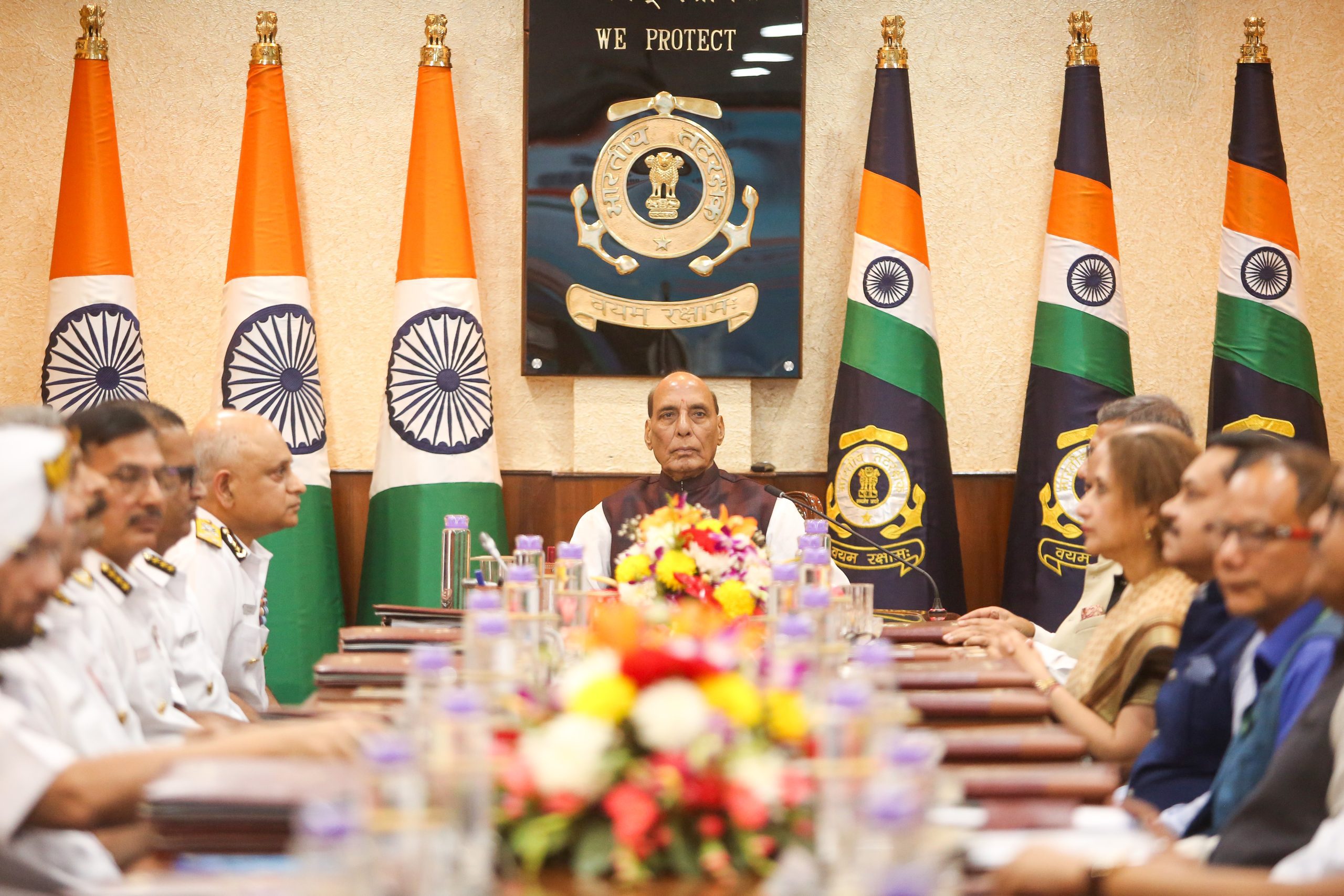Defence Minister Rajnath Singh on Monday inaugurated the 42nd Indian Coast Guard (ICG) Commanders’ Conference in New Delhi, calling for a “futuristic roadmap” to strengthen India’s maritime security. Addressing senior ICG leadership at the three-day conference (September 28–30), Singh praised the force’s professionalism, humanitarian service, and critical role in safeguarding India’s 7,500-km-long coastline and island territories.
Lauding the ICG’s transformation from a modest fleet into a formidable force of 152 vessels and 78 aircraft, the Defence Minister described it as a “vital pillar of national security” that operates at the intersection of external and internal security. “By patrolling the Exclusive Economic Zone (EEZ), the ICG not only deters external threats but also addresses illegal fishing, drug and arms trafficking, smuggling, marine pollution, and irregular maritime activities,” he said.
Technology-Driven Vigilance
Singh emphasised the need to integrate AI, machine learning, drones, cyber defence systems, and automated surveillance networks into India’s maritime security architecture. “Traditional methods are no longer sufficient. We must be ahead of criminals and adversaries by using cutting-edge technology to ensure faster response times,” he said, warning that cyber and electronic warfare are now present-day realities.
He also highlighted that modern warfare is measured “in hours and seconds” and urged the ICG to focus on preparedness, adaptability, and rapid response as the cornerstones of its vision.
Indigenisation & Self-Reliance
Reaffirming the government’s commitment to Aatmanirbhar Bharat, Singh noted that nearly 90% of the ICG’s capital budget is spent on indigenous assets. “This has enhanced operational strength while boosting India’s shipbuilding sector and economy,” he said, stressing that security and self-reliance must progress hand-in-hand.
Humanitarian & Multi-Agency Role
Calling the ICG a “true force multiplier,” Singh praised its seamless coordination with the Navy, civil administration, and other security agencies. He highlighted its swift disaster response and humanitarian operations, noting that the force has rescued over 14,500 lives to date, including 74 lives in 76 Search and Rescue (SAR) missions this year alone.
Women Empowerment in the Ranks
Singh commended the ICG’s efforts to empower women, who now serve as pilots, observers, hovercraft operators, air traffic controllers, logistics officers, and law officers. “Women today serve as frontline warriors, reflecting our vision of inclusive participation,” he said.
Geopolitical Awareness & Economic Security
Singh urged the ICG to maintain geopolitical awareness, citing instability in neighbouring countries that often spills over into the maritime domain. He linked maritime security with economic security, underscoring that ports, shipping lanes, and energy infrastructure are “lifelines of the nation’s economy.”
ICG Achievements & Way Forward
Since its inception, the ICG has apprehended 1,638 foreign vessels and 13,775 foreign fishermen involved in illegal activities and seized 6,430 kg of narcotics worth ₹37,833 crore. The conference will deliberate on strengthening inter-service coordination, enhancing maritime domain awareness, and aligning future capabilities with India’s maritime priorities.
Director General ICG Paramesh Sivamani presented an operational overview and strategic vision for the force, with a strong focus on indigenisation. Senior officials from the Ministry of Defence, including Defence Secretary Rajesh Kumar Singh and Secretary (Defence Production) Sanjeev Kumar, were also present.
Rajnath Singh concluded by invoking the ICG motto Vayam Rakshamah (We Protect), urging the commanders to remain vigilant and innovative. “Our march towards a developed India by 2047 rests on the twin pillars of prosperity and security. This pledge embedded in every ICG personnel will ensure we hand over a strong, secure, and self-reliant India to future generations,” he said.














